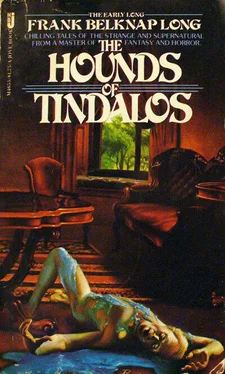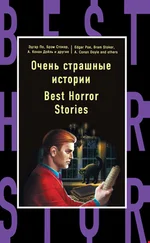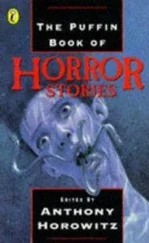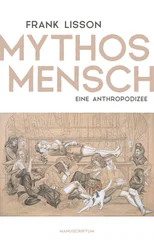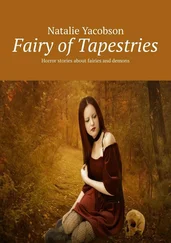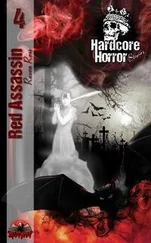"I turned round to make sure that the butter and flour were covered up, and something soft like a sponge rose up from the bottom of the wagon and hit me in the face. I snatched at it and caught it between my fingers.
"In my hands it felt like jelly. I squeezed it, and moisture ran out of it down my wrists. It wasn't so dark that I couldn't see it, either. Funny how you can see in fogs — they seem to make the night lighter. There was a sort of brightness in the air. I dunno, maybe it wasn't the fog, either. The trees seemed to stand out. You could see them sharp and clear. As I was saying, I looked at the thing, and what do you think it looked like? Like a piece of raw liver. Or like a calf's brain. Now that I come to think of it, it was more like a calf's brain. There were grooves in it, and you don't find many grooves in liver. Liver's usually as smooth as glass.
"It was an awful moment for me. 'There's someone up in one of those trees,' I thought. 'He's some tramp or crazy man or fool, and he's been eating liver. My wagon frightened him and he dropped it — a piece of it. I can't be wrong. There was no liver in my wagon when I left Brewster.'
"I looked up. You know how tall all of the trees are in Mulligan Wood. You can't see the tops of some of them from the wagon-road on a clear day. And you know how crooked and queer-looking some of the trees are.
"It's funny, but I've always thought of them as old men — tall old men, you understand, tall and crooked and very evil. I've always thought of them as wanting to work mischief. There's something unwholesome about trees that grow very close together and grow crooked.
"I looked up.
"At first I didn't see anything but the tall trees, all white and glistening with the fog, and above them a thick, white mist that hid the stars. And then something long and white ran quickly down the trunk of one of the trees.
"It ran so quickly down the tree that I couldn't see it clearly. And it was so thin anyway that there wasn't much to see. But it was like an arm. It was like a long, white, and very thin arm. But of course it wasn't an arm. Who ever heard of an arm as tall as a tree? I don't know what made me compare it to an arm, because it was really nothing but a thin line — like a wire, a string. I'm not sure that I saw it at all. Maybe I imagined it. I'm not even sure that it was as wide as a string. But it had a hand. Or didn't it? When I think of it my brain gets dizzy. You see, it moved so quickly I couldn't see it clearly at all.
"But it gave me the impression that it was looking for something that it had dropped. For a minute the hand seemed to spread out over the road, and then it left the tree and came toward the wagon. It was like a huge white hand walking on its fingers with a terribly long arm fastened to it that went up and up until it touched the fog, or perhaps until it touched the stars.
"I screamed and slashed Hortense with the reins, but the horse didn't need any urging. She was up and off before I could throw the liver, or calf's brain, or whatever it was, into the road. She raced so fast she almost upset the wagon, but I didn't draw in the reins. I'd rather lie in a ditch with a broken rib than have a long, white hand squeezing the breath out of my throat.
"We had almost cleared the wood and I was just beginning to breathe again when my brain went cold. I can't describe what happened in any other way. My brain got as cold as ice inside my head. I can tell you I was frightened.
"Don't imagine I couldn't think clearly. I was conscious of everything that was going on about me, but my brain was so cold I screamed with the pain. Have you ever held a piece of ice in the palm of your hand for as long as two or three minutes? It burnt, didn't it? Ice burns worse than fire. Well, my brain felt as though it had lain on ice for hours and hours. There was a furnace inside my head, but it was a cold furnace. It was roaring with raging cold.
"Perhaps I should have been thankful that the pain didn't last. It wore off in about ten minutes, and when I got home I didn't think I was any the worse for my experience. I'm sure I didn't think I was any the worse until I looked at myself in the glass. Then I saw the hole in my head."
Henry Wells leaned forward and brushed back the hair from his right temple.
"Here is the wound," he said. "What do you make of it?" He tapped with his fingers beneath a small round opening in the side of his head. "It's like a bullet-wound," he elaborated, "but there was no blood and you can look in pretty far. It seems to go right in to the center of my head. I shouldn't be alive."
Howard had risen and was staring at my neighbor with angry and accusing eyes.
"Why have you lied to us?" he shouted. "Why have you told us this absurd story? A long hand! You were drunk, man. Drunk — and yet you've succeeded in doing what I'd have sweated blood to accomplish. If I could have made my readers feel that horror, know it for a moment, that horror that you described in the woods, I should be with the immortals — I should be greater than Poe, greater than Hawthorne. And you — a clumsy drunken liar…"
I was on my feet with a furious protest.
"He's not lying," I said. "He's been shot — someone has shot him in the head. Look at this wound. My God, man, you have no call to insult him!"
Howard's wrath died and the fire went out of his eyes. "Forgive me," he said. "You can't imagine how badly I've wanted to capture that ultimate horror, to put it on paper, and he did it so easily. If he had warned me that he was going to describe something like that I would have taken notes. But of course he doesn't know he's an artist. It was an accidental tour de force that he accomplished; he couldn't do it again, I'm sure. I'm sorry I went up in the air — I apologize. Do you want me to go for a doctor? That is a bad wound."
My neighbor shook his head. "I don't want a doctor," he said. "I've seen a doctor. There's no bullet in my head — that hole was not made by a bullet. When the doctor couldn't explain it, I laughed at him. I hate doctors, — and I haven't much use for fools who think I'm in the habit of lying. I haven't much use for people who won't believe me when I tell 'em I saw the long, white thing come sliding down the tree as clear as day."
But Howard was examining the wound in defiance of my neighbor's indignation. "It was made by something round and sharp," he said. "It's curious, but the flesh isn't torn. A knife or bullet would have torn the flesh, left a ragged edge."
I nodded, and was bending to study the wound when Wells shrieked, and clapped his hands to his head. "Ah-h-h!" he choked. "It's come back — the terrible, terrible cold."
Howard stared. "Don't expect me to believe such nonsense!" he exclaimed disgustedly.
But Wells was holding on to his head and dancing about the room in a delirium of agony. "I can't stand it!" he shrieked. "It's freezing up my brain. It's not like ordinary cold. It isn't. Oh, God! It's like nothing you've ever felt. It bites, it scorches, it tears. It's like acid."
I laid my hand upon his shoulder and tried to quiet him, but he pushed me aside and made for the door.
"I've got to get out of here," he screamed. "The thing wants room. My head won't hold it. It wants the night — the vast night. It wants to wallow in the night."
He threw back the door and disappeared into the fog. Howard wiped his forehead with the sleeve of his coat and collapsed into a chair.
"Mad," he muttered. "A tragic case of manic-depressive psychosis. Who would have suspected it? The story he told us wasn't conscious art at all. It was simply a nightmare-fungus conceived by the brain of a lunatic."
"Yes," I said, "but how do you account for the hole in his head?"
"Oh, that!" Howard shrugged. "He probably always had it — probably was born with it."
Читать дальше
